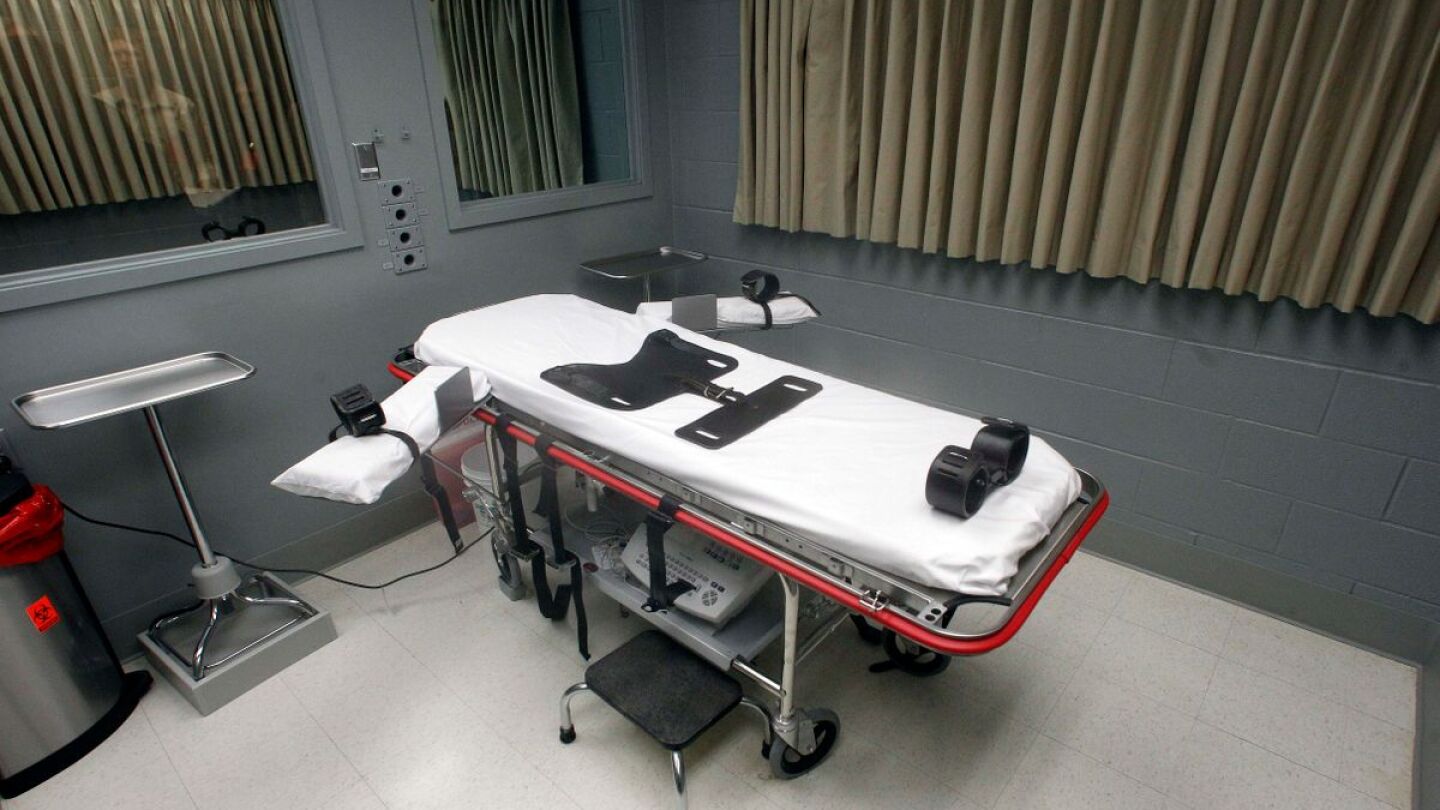Capital Punishment
Capital Punishment is a profoundly complex and controversial aspect of the criminal justice system. This section provides articles that explore the history, legal frameworks, and ethical debates surrounding Capital Punishment in various jurisdictions. Correctional professionals can gain insights into the procedures, implications, and ongoing discussions about using the death penalty. Understanding Capital Punishment is crucial for those involved in its administration and those engaged in broader criminal justice reform efforts. For further context, explore related topics on supermax prisons.
Ralph Leroy Menzies, convicted of a 1986 murder, was days away from execution when the court intervened
Curtis Windom’s death marks Florida’s 11th execution in 2025 — a new state record since capital punishment resumed in 1976
In one case, a judge blocked the DOJ’s attempt to seek the death penalty for a 2022 police officer killing, citing due process violations
Raheem Taylor long maintained that he was in California when his girlfriend and her three young children were killed in 2004
Kenneth Eugene Smith was scheduled to be put to death by lethal injection last year for a 1988 murder-for-hire slaying
If the bill passes as is, Florida would have “the most extreme death penalty statute in the country”
“I would like to apologize to Mark and the Nix family for taking him away from you. I hope this brings you closure,” inmate Wesley Ruiz said
The order means that it could be four more months until justices decide whether a newly organized firing squad or the electric chair are legal methods of execution
Executions will now be held at least 60 days apart rather than every 30 days in the state
“Arizona has a history of mismanaged executions that have resulted in serious questions and concerns about execution protocols,” Gov. Katie Hobbs said
The review found that the state hasn’t complied with lethal injection processes since 2018, resulting in executions being conducted without proper drug testing
The state’s latest attempt to end nearly 12 years without an execution is to pass a new shield law to protect the identities of drug providers
Attorney General Gentner Drummond requested that executions be set 60 days apart, rather than the current 30-day timeframe
Several other states, including California and Georgia, allow for a multi-day execution process
“Supplying nitrogen for the purpose of human execution is not consistent with our company values,” a company rep said
Prior to the ruling, execution warrants in the state were only valid for the day noted on the court order
Scott James Eizember’s attorneys did not deny he killed A.J. Cantrell, 76, and his wife, Patsy Cantrell, 70, on Oct. 18, 2003
Robert Fratta, 65, received a lethal injection of pentobarbital as his spiritual advisor prayed over him for hiring two people to kill his estranged wife in 1994
Robert Fratta, 65, is scheduled to receive a lethal injection for hiring two people to kill his estranged wife in 1994
Amber McLaughlin, 49, spoke with a spiritual advisor as she received a lethal injection of pentobarbital for killing Beverly Guenther in 2003
Amber McLaughlin’s scheduled execution for murdering a former girlfriend will be the first of an openly transgender woman
Two 2022 called-off execution attempts have led to a top-to-bottom internal review of the Alabama death penalty process
Christopher Williams, 62, spent 25 years on Pennsylvania death row, before being exonerated of four murders and freed
Inmate Henry Hodges has accused the state of cruel and unusual punishment and inadequate medical and mental health care
Thomas Edwin Loden Jr., who claimed he was “deeply remorseful,” was put to death by lethal injection
With less than a month left in office, Gov. Kate Brown used executive clemency powers to change the death sentence to life in prison without the possibility of parole
Scott Eizember is scheduled for lethal injection for the 2003 shotgun killings of an elderly couple
This is the fourth time in 36 years that the death warrant for double murderer Gerald Pizzuto will expire
Alabama agreed to never again use lethal injection as an execution method to put Alan Eugene Miller to death
McEntee’s wife said her husband’s killer acted as “judge, juror and executioner” in taking his life
The state supreme court has denied two stays and the governor announced he would not grant clemency to Kevin Johnson
The order comes after two failed attempts at lethal injections, calling for a “top-to-bottom” review of the process
It’s the second execution since September the state has canceled because of difficulties with establishing an IV line with a deadline looming




























